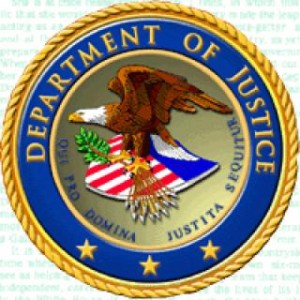WASHINGTON D.C.
Law enforcement officials announced Wednesday that 60 people including medical professionals were charged for drug dealing, according to officials.
The 60 charged included 31 doctors, seven pharmacists, eight nurse practitioners, and seven other medical professionals. The charges included illegally prescribing and distributing opioids and other dangerous drugs and health care fraud, according to officials.
In addition, HHS announced today that since June 2018, it has excluded over 2,000 individuals from participation in Medicare, Medicaid, and all other Federal health care programs, which includes more than 650 providers excluded for conduct related to opioid diversion and abuse.
Since July 2017, DEA has issued 31 immediate suspension orders, 129 orders to show cause, and received 1,386 surrenders for cause nationwide for violations of the Controlled Substances Act.
“The opioid epidemic is the deadliest drug crisis in American history, and Appalachia has suffered the consequences more than perhaps any other region,” Attorney General William P. Barr said. “But the Department of Justice is doing its part to help end this crisis. One of the Department’s most promising new initiatives is the Criminal Division’s Appalachian Regional Prescription Opioid Strike Force, which began its work in December.”
Adding, “Just four months later, this team of federal agents and 14 prosecutors has charged 60 defendants for alleged crimes related to millions of prescription opioids. I am grateful to the Criminal Division, their U.S. Attorney partners, and to the members of the strike force for this outstanding work that holds the promise of saving many lives in Appalachian communities.”
 The charges announced today involve individuals contributing to the opioid epidemic, with a particular focus on medical professionals involved in the unlawful distribution of opioids and other prescription narcotics, a priority for the Department.
The charges announced today involve individuals contributing to the opioid epidemic, with a particular focus on medical professionals involved in the unlawful distribution of opioids and other prescription narcotics, a priority for the Department.
According to the CDC, approximately 130 Americans die every day of an opioid overdose.
“Today’s takedown demonstrates the FBI’s unwavering commitment to working alongside our Strike Force partners, including the HHS-OIG and DEA, to fight the opioid epidemic and related criminal activity in the Appalachian region,” said FBI Executive Assistant Director Hess. “We will not stand by and allow the harmful and oftentimes deadly practice of over-prescribing highly addictive drugs to continue unchecked. The FBI will pursue medical personnel who misuse their positions of trust to blatantly disregard others’ very lives for their own financial gain.”
“Opioid misuse and abuse is an insidious epidemic, created in large part, by the over-prescribing of potent opioids nationwide, and unfortunately, Appalachia is at the center,” said DEA Assistant Administrator Martin. “Today’s announcement sends a clear message that investigations involving diversion of prescription drugs have been, and continue to be, a priority for DEA.”
*********
 For the ARPO Strike force locations, in the Southern District of Ohio, six individuals, including two doctors and three registered pharmacists were charged with several counts, including unlawful distribution of controlled substances and conspiracy to obtain controlled substances by fraud.
For the ARPO Strike force locations, in the Southern District of Ohio, six individuals, including two doctors and three registered pharmacists were charged with several counts, including unlawful distribution of controlled substances and conspiracy to obtain controlled substances by fraud.
In one case, a doctor who is alleged to have been at one time the highest prescriber of controlled substances in the state, and several pharmacists are charged with operating an alleged “pill mill” in Dayton, Ohio.
According to the indictment, between October 2015 and October 2017 alone, the pharmacy allegedly dispensed over 1.75 million pills.
In the Western District of Kentucky, a doctor was charged with controlled substance and health care fraud counts in connection with providing pre-signed, blank prescriptions to office staff who then used them to prescribe controlled substances when he was out of the office, and for directing staff at the clinic, including individuals not licensed to practice medicine, to perform medical services on patients.
 In another case, a doctor, a Florida compounding pharmacy and its owner were charged in connection with a scheme that involved the payment of alleged kickbacks in return for writing prescriptions for compounded drugs that included controlled substances, and for fraudulently inflating the costs for prescriptions that were billed for reimbursement by Medicare and TRICARE.
In another case, a doctor, a Florida compounding pharmacy and its owner were charged in connection with a scheme that involved the payment of alleged kickbacks in return for writing prescriptions for compounded drugs that included controlled substances, and for fraudulently inflating the costs for prescriptions that were billed for reimbursement by Medicare and TRICARE.
In the Eastern District of Kentucky, a total of five people were charged, including three doctors, a dentist and an office assistant who were charged in connection with several health care fraud and/or controlled substance schemes.
In one case a doctor operating a clinic that focused on pain management allegedly provided pre-signed, blank prescriptions to office staff who then used them to prescribe controlled substances when he was out of the office.
In another case, a solo practitioner who operates a five-clinic family practice focusing on pain management allegedly billed Medicare for urine testing that was not done and for urine testing that was not medically necessary.
A dentist was charged for alleged conduct that included writing prescriptions for opioids that had no legitimate medical purpose and that were outside the usual course of professional practice, removing teeth unnecessarily, scheduling unnecessary follow-up appointments, and billing inappropriately for services.
In yet another case, a doctor was charged for allegedly prescribing opioids to Facebook friends who would come to his home to pick up prescriptions, and for signing prescriptions for other persons based on messenger requests to his office manager, who then allegedly delivered the signed prescriptions in exchange for cash.
In the Middle District of Tennessee, federal indictments were unsealed today charging nine Middle Tennessee medical professionals, including four doctors, four nurse practitioners and a pharmacist, with various charges alleging their participation in illegally prescribing and dispensing opioids and other dangerous narcotics and health care fraud schemes.
Two cases involve doctors who were previously sanctioned by the Tennessee Medical Board in connection with the overprescribing of opioids, one of whom was sanctioned for providing prescriptions to vulnerable patients, while the other allegedly prescribed opioid pills after serving a Board imposed term of probation.
Another case alleges that a doctor prescribed opioids and other controlled substances to at least four individuals.
In another case, an advanced practice registered nurse at a pain management clinic allegedly wrote prescriptions for opioids that had no legitimate medical purpose and that were outside the usual course of professional practice.
Separately, a pharmacist was charged for allegedly dispensing large amounts of opioids outside the usual scope of professional practice and for no legitimate medical purpose. Finally, a podiatrist was charged with unlawful distribution of controlled substances.
In the Eastern District of Tennessee, at total of eight individuals, including five doctors, a nurse practitioner, a physician’s assistant, and an office manager were charged in four cases. Four doctors, a nurse practitioner and a physician’s assistant were charged with the unlawful distribution of opioids. Two doctors were charged with health care fraud violations.
In the Western District of Tennessee, 15 individuals were charged, involving eight doctors and several other medical professionals.
In one case, a doctor who branded himself the “Rock Doc,” allegedly prescribed powerful and dangerous combinations of opioids and benzodiazepines, sometimes in exchange for sexual favors; over approximately three years, the doctor allegedly prescribed approximately 500,000 hydrocodone pills, 300,000 oxycodone pills, 1,500 fentanyl patches, and more than 600,000 benzodiazepine pills.
In another case, a nurse practitioner charged with conspiracy to unlawfully distribute controlled substances allegedly prescribed over 500,000 Hydrocodone pills, approximately 300,000 Oxycodone pills, and approximately 300,000 benzodiazepine pills (mostly Alprazolam), along with a myriad of other controlled substances.
In another case, a physician charged with controlled substances and health care fraud violations allegedly prescribed approximately 300,000 hydrocodone pills, 200,000 oxycodone pills, 2,500 fentanyl patches, and 180,000 benzodiazepine pills, and prescribed medically unnecessary durable medical equipment that was billed to Medicare.
Another doctor charged with controlled substances violations allegedly prescribed approximately 4.2 million opioid pills, sometimes in dangerous combinations with other drugs, such as benzodiazepines, and prescribed opioids to known addicts.
In the Northern District of Alabama, multiple individuals were charged in five cases, including four doctors. In one case, the owners and operators of a medical clinic and dispensary were charged with the unlawful distribution of controlled substances and health care fraud.
In that case, a doctor allegedly prescribed opioids in high dosages, dangerous combinations, and in many cases, after having knowledge that patients failed drug screens and were addicts, preferring cash payments and charging a “concierge fee” that ranged from approximately $50 per visit or $600 per year.
In another case, a doctor allegedly recruited prostitutes and other young women with whom he had sexual relationships to become patients at his clinic, while simultaneously allowing them and their associates to abuse illicit drugs at his house.
n yet another case, a doctor allegedly dispensed controlled substances and other prescription drugs directly from the clinic, and prescribed excessive quantities of controlled substances to the same patients several times per month resulting in as many as 15 pills per day for some patients.
In that case, the doctor also signed blank prescription forms to be completed by her staff when she was not at the clinic.
In the Northern District of West Virginia, a case was brought against an orthopedic s
urgeon who allegedly used fraudulent prescriptions to obtain tablets of acetaminophen-codeine for his own use.
To obtain the pills, the surgeon allegedly wrote out prescriptions using his DEA number, and in the names of a relative even though the pills were for his own use, using a driver’s license that he had stolen from a colleague to obtain the pills from pharmacy.
In the Southern District of West Virginia, a doctor was charged with allegedly distributing narcotics, including dextroamphetamine, methylphenidate, and amphetamine salt, to a patient who did not have a medical need for the drugs and whom the doctor never examined.
*********


